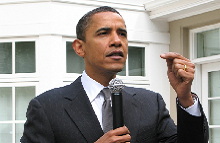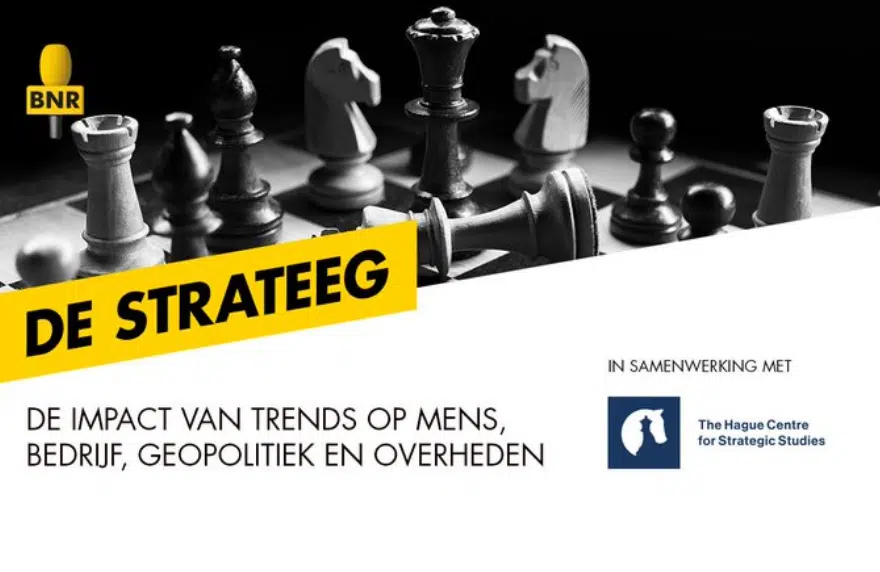’Nederlandse crisis brengt coalitie in Afghanistan in gevaar’ kopte de International Herald Tribune, na de val van Balkenende IV. Daarmee vatte de krant de internationale kijk op de gevolgen van de politieke chaos in dit land goed samen.
In een hoofdredactioneel commentaar zei de New York Times dat Nederland zichzelf en al zijn bondgenoten verzwakt. Andere landen zullen het Nederlandse gat moeten opvullen.
Volgens de Britse defensie-expert Lindley-French zullen onnodig veel Britse en Amerikaanse militairen sneuvelen. Ook vreest hij dat nu meer landen volgen. Als de Amerikanen en Britten in Afghanistan ook hun taken moeten overnemen omdat zij niet bereid zijn een smadelijke nederlaag te incasseren, zullen deze landen een onaanvaardbaar hogere prijs betalen, zegt Lindley-French.
Hoezeer naar Nederland wordt gekeken bleek deze week in Washington, waar onder aanvoering van de Amerikaanse oud-minister van buitenlandse zaken Albright over de nieuwe strategie van de Navo werd gesproken. Zonder Nederland te noemen stelde de Amerikaanse minister van defensie Gates dat de politieke en publieke weerstand tegen de missie in Afghanistan door Europees antimilitarisme en het mijden van risico zo groot is geworden dat de hele Navo in gevaar komt. Minister van buitenlandse zaken Clinton sprak van een leiderschapscrisis die de hele democratische wereld teistert. En in de wandelgangen werd geklaagd dat Nederland zich terugtrekt, terwijl 36 van de 44 landen juist méér troepen zenden.
Wordt Nederland nu de risee van de westerse wereld? Onlangs hoorde ik voormalig PvdA-kopstuk Ad Melkert, nu hoge vertegenwoordiger van de VN in Irak, in ’Buitenhof’ zeggen dat als Nederland zich uit Afghanistan terugtrekt, er omwille van de internationale solidariteit en de positie van Nederland een plan moet komen om Nederlandse troepen elders in risicogebieden in te zetten. Of gaat Nederland zich vanaf nu met landen als Fiji en Bangladesh toeleggen op simpele VN-operaties in Afrikaanse landen? Hopelijk komt het parlement bij zinnen en zet het de deur alsnog open voor een beperkte missie in Uruzgan.
Maar voorlopig duidt het totale gebrek aan visie en ambitie en de chaotische val van het kabinet op een voor iedereen zichtbaar dieper probleem in de Nederlandse politiek. Wat is er toch aan de hand, werd mij de afgelopen dagen in Washington gevraagd. Jammer dat ’Vertrouwen op Democratie’, een recent rapport van de Raad voor het Openbaar Bestuur (ROB), niet in het Engels was verschenen. Want anders had ik het daar uitgedeeld.
De Raad voor het Openbaar bestuur beschrijft een legitimiteitscrisis van de Nederlandse politiek die zo ernstig is dat het hele stelsel op het punt staat te imploderen. Men wantrouwt politici. Het ontbreek hen aan gezag, kennis en geloofwaardigheid en politici zijn niet langer in staat verbindingen met de bevolking te maken. Door de onwil via burgemeestersverkiezingen en referenda de mensen bij het beleid te betrekken, en het onvermogen om mensen, zoals Obama dat deed, met een Groot Verhaal te inspireren is de politiek zelf onderdeel van het probleem geworden.
Interessant is wat de ROB over buitenlands beleid zegt. Naast het nemen van maatregelen om de gevolgen van de economische crisis te dempen moet Nederland een omslag maken naar een nieuwe economie, maar ’een nieuwe economie kan niet worden gecreëerd zonder samenwerking door partners wereldwijd’.
Dat dit een Groot Verhaal eist over de positie van Nederland in de wereld is helder. Maar helaas lijkt de Nederlandse politiek zich volgens de ROB niet in staat zichzelf opnieuw uit te vinden.
Het drama rond Uruzgan is daarmee een symptoom van diepe legitimiteitscrisis waarover de ROB schreef.
Trouw





